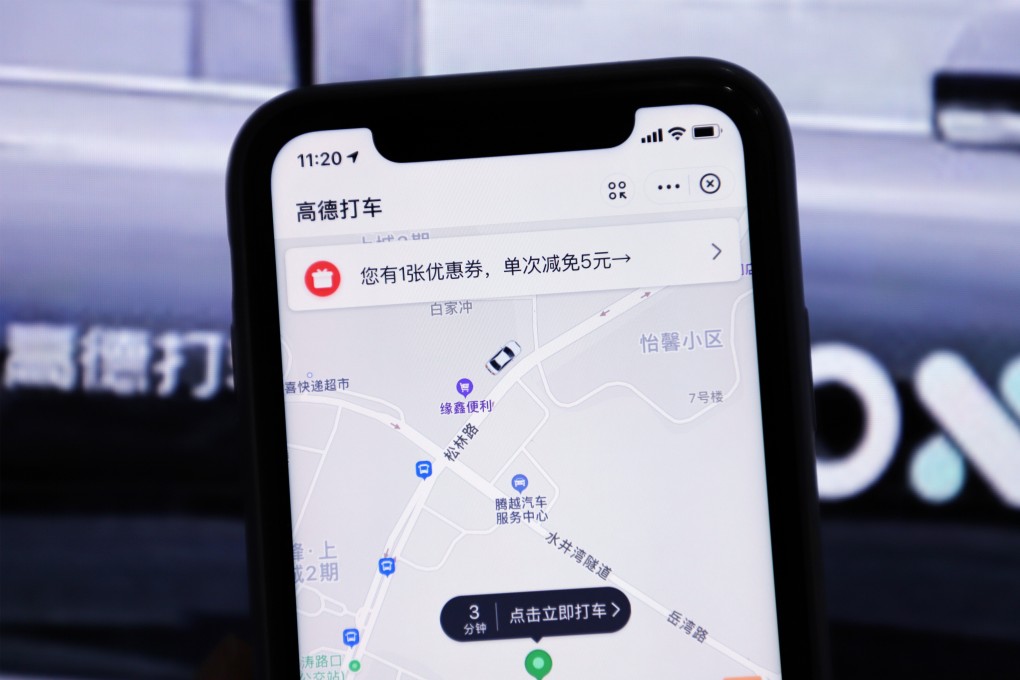Beijing Taxi takes on Didi with Alibaba’s AutoNavi mapping service in a challenge to unlicensed ride-hailing
- Beijing Taxi Cum Automotive Leasing Association teamed up with Alibaba’s digital mapping service AutoNavi on a ride-hailing service called Beijing Taxi
- Ride-hailing services have come under scrutiny since the launch of a cybersecurity probe into Didi Chuxing, which raised questions about sensitive mapping data

The service called Beijing Taxi is being offered through AutoNavi, the digital maps service provider owned by e-commerce giant Alibaba, which also owns the South China Morning Post. It is jointly operated by the Beijing Taxi Cum Automotive Leasing Association and AutoNavi, which offers access to the service in its app alongside other ride-hailing services.
The service is being launched after four months of development, making more than 100 of the city’s small and medium-sized taxi companies available through a single online interface.
In addition to being accessible through AutoNavi’s main app, Beijing Taxi can be found on the mapping service’s mini programs on WeChat, the ubiquitous social media app operated by Tencent Holdings, and Alipay, the mobile payments app from Ant Group, an affiliate of Alibaba.
Before the new collaboration, AutoNavi already offered ride-hailing services from some taxi companies in Beijing, including Beiqi Taxi Group and Beijing Yuyang United Taxi Group. The team-up with the taxi association adds many more fleets to the AutoNavi app.
Ji Ying, the secretary general of the China Taxicab and Livery Association, called the model a “new benchmark for the taxi industry in China”.
This is a challenge for apps like Didi, which offer services from both official taxi companies and independent drivers, who often do not meet regulatory requirements. Beijing requires both the driver and the vehicle to be licensed for ride-hailing services.
Only 40 per cent of Didi vehicles in service in China were licensed in August, according to data from China’s Ministry of Transport. For Meituan’s ride-hailing service, the number was 41.8 per cent.